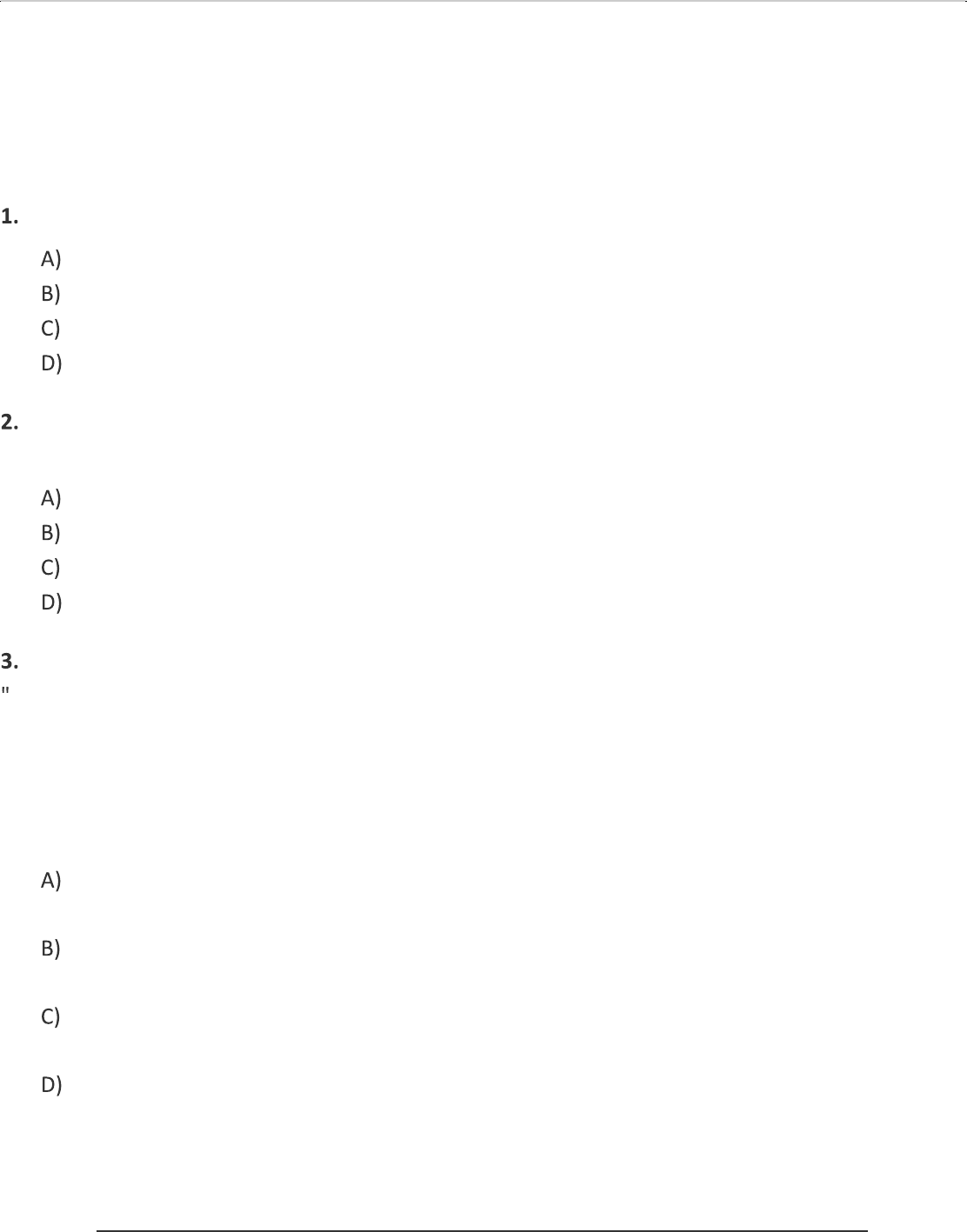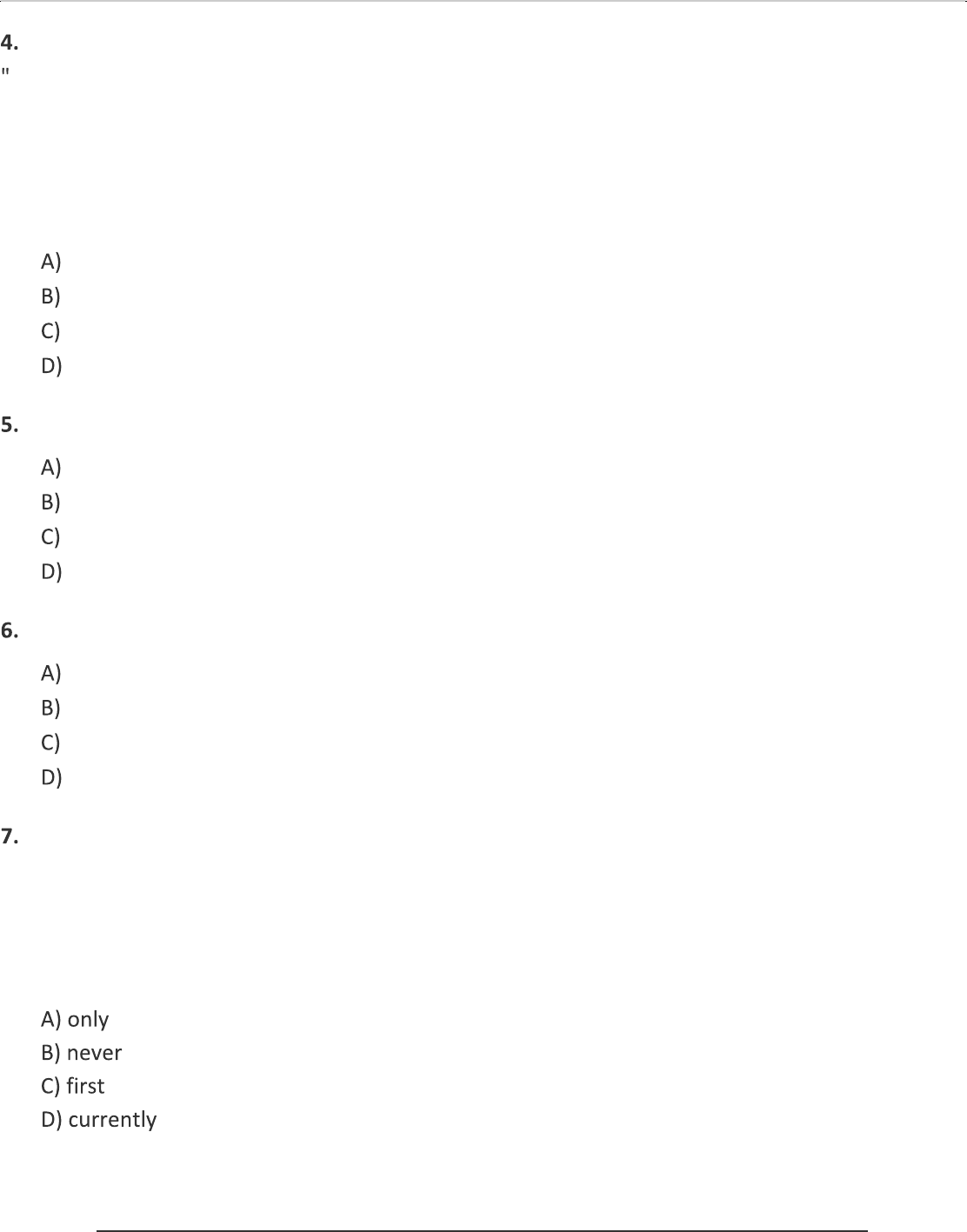
How Do I Love Thee? (Sonnet 43)
By Elizabeth Barrett Browning
How do I love thee? Let me count the ways.
I love thee to the depth and breadth and height
My soul can reach, when feeling out of sight
For the ends of being and ideal grace.
I love thee to the level of every day’s
Most quiet need, by sun and candle-light.
I love thee freely, as men strive for right.
I love thee purely, as they turn from praise.
I love thee with the passion put to use
In my old griefs, and with my childhood’s faith.
I love thee with a love I seemed to lose
With my lost saints. I love thee with the breath,
Smiles, tears, of all my life; and, if God choose,
I shall but love thee better after death.
How Do I Love Thee? (Sonnet 43)ReadWorks.org
ReadWorks.org
THE SOLUTION TO READING COMPREHENSION
© 2016 ReadWorks , Inc. All rights reserved.
®

Name: _____________________________________________ Date: ______________________
How Do I Love Thee? (Sonnet 43)
By Elizabeth Barrett Browning
What does the speaker count in this poem?
the ways he or she gets through difficulties in life
the ways he or she grieves for the "lost saints" of childhood
the ways he or she loves the person being addressed
the ways he or she thinks the person being addressed could improve
The rhyme scheme of the first four lines of this poem is ABBA. What is the
rhyme scheme of the next four lines (lines 5-8)?
AAAA
AABB
ABBA
ABAB
Read these lines from the poem.
I love thee to the depth and breadth and height
My soul can reach, when feeling out of sight
For the ends of being and ideal grace."
Based on these lines, what can you conclude about the speaker's love for
the addressee?
The speaker loves the addressee as much as the speaker's soul
allows.
The speaker loves the addressee even though the addressee is not
graceful.
The depth of the speaker's love for the addressee is not as great as its
breadth and height.
The height of the speaker's love for the addressee is not as great as
its depth and breadth.
How Do I Love Thee? (Sonnet 43)ReadWorks.org
ReadWorks.org
THE SOLUTION TO READING COMPREHENSION
© 2016 ReadWorks , Inc. All rights reserved.
®

Read these lines from the poem.
I love thee with the passion put to use
In my old griefs, and with my childhood’s faith.
I love thee with a love I seemed to lose
With my lost saints."
Based on these lines, what can you conclude about the speaker's past?
There have been times of joy and pride in the speaker's past.
There have been times of sadness and loss in the speaker's past.
There have been times of hate and violence in the speaker's past.
There have been times of boredom and disgust in the speaker's past.
What is the speaker's message to his or her addressee?
I wish I had met you sooner.
I love you now more than I used to.
I love you now, but I used to love you more.
I love you in many different ways.
Where in this poem does anaphora occur?
lines 1, 2, 3, 4, and 6
lines 2, 4, 6, 7, 13, and 14
lines 3, 4, 5, 6, and 10
lines 5, 7, 8, 9, 11, and 12
Read these lines from the poem.
"I love thee with the breath,
Smiles, tears, of all my life; and, if God choose,
I shall but love thee better after death."
What is the meaning of the word "but" in the last line?
How Do I Love Thee? (Sonnet 43)ReadWorks.org
ReadWorks.org
THE SOLUTION TO READING COMPREHENSION
© 2016 ReadWorks , Inc. All rights reserved.
®

The speaker declares that he or she loves the addressee with “passion”
(line 9). What was this passion once put to use in?
How have the speaker’s feelings changed between the past and the
present?
Support your answer with evidence from the text.
How might the speaker’s feelings change between the present and the
future?
Support your answer with evidence from the text.
How Do I Love Thee? (Sonnet 43)ReadWorks.org
ReadWorks.org
THE SOLUTION TO READING COMPREHENSION
© 2016 ReadWorks , Inc. All rights reserved.
®
